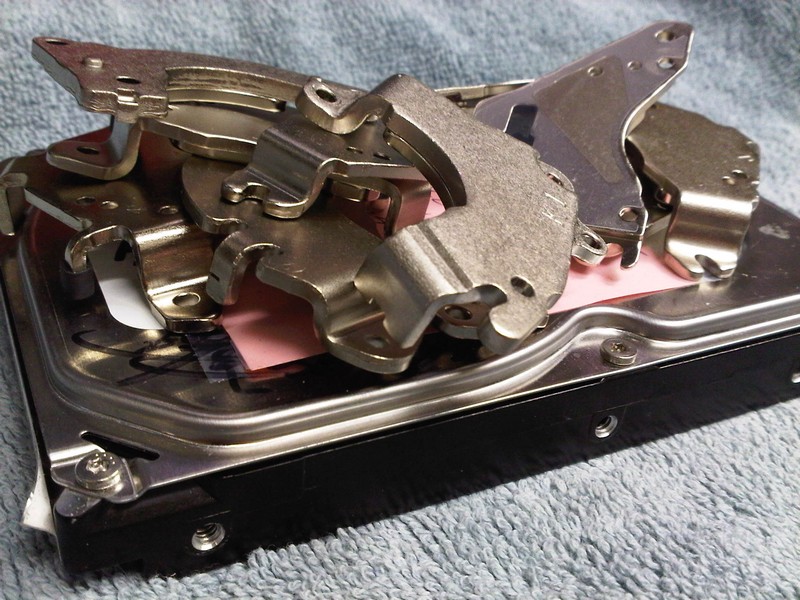Magnets do what to a hard drive?
So I know what I’ve heard about magnets over the years and them being too close to the computer, not to place magnets on the computer, etc. I guess there is some substance to that way back when with older drives but I thought I would try a simple experiment and take several neodymium magnets I had from taking apart previous defunct hard drives, pile them onto a hard drive and see what happens. The result – nothing really.
In my experiment I took the hard drive, placed the magnets on it and hooked it up to the system. i turned on the computer and it started just fine.
In my next test I left the hard drive attached, the hard drive booted and modified the placement of the magnets so that one of them was directly over the hard drive actuator arm/actuator axis area. I double-clicked on a folder and mouse hung at busy. I removed the magnet and then Windows completed opening the folder. I put the magnet back, same test, same behavior.
My next test was leaving the pile of magnets on the drive in excess of 30-days and repeating the same tests, the results were the same. No data was lost on the hard drive that I could tell, the operating system functioned just fine. It may seem like a stupid test but it was out of curiosity more than anything else. The drive I used was a Western Digital 160GB SATA drive.
I know that if I had magnets strong enough that data would certainly be corrupted or destroyed but the strength of such a magnet would be strong enough to remove the iron from my blood. Id’ just rather resort to a hammer or drilling through the drive with a nice sized drill-bit.


Very interesting. I guess we may add that to the list of urban legends in tech…
great blog by the way
Thanks! I find that sometimes even the smallest information may be what someone is looking for so I just like to post random things. I was doing a magnet study at work and thought it was interesting enough to post about with my own version of it. My magnet test was just a simple debunker under a normal “myth” cicumstance. If you get a more powerful magnet involved here then Im sure things will start to happen but this was more like a casual debunk test. I took it the extra level of placing them on the drive just to show then even with direct contact nothing significant was occurring, aside from placing a magnet directly over the arm/actuator location, but still, no loss of data. This does throw of the myth of not being able to put magnets on the side of a computer case which is another tangent.
Well, maybe back in the day when hard drives were fairly new technology a magnet might have wrought havoc on the data. But, I would have expected that after 30 days there would be some data corruption.
The only true test is to write some random data to fill up the hdd, generate a CRC or MD5 of the drive, do the magnet test, then compare the CRC/MD5 after the magnet test.
It’s possible there is some data corruption, just not where you pulled the data from.
Nice, I guess I have a part II to this coming then. Thanks Steve!